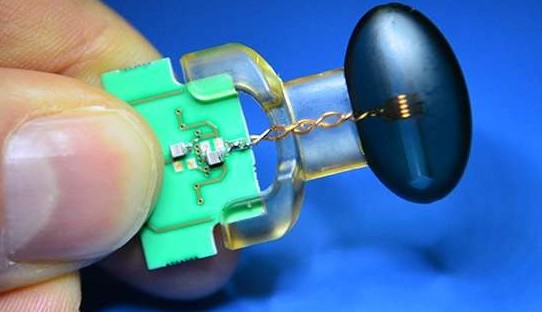Ultra-sensitive magnetic field sensor
January 30, 2017
on
on

Researchers at the Institute for Biomedical Engineering in Zürich, operated jointly by ETH Zürich and the University of Zürich, have succeeded in measuring very small variations in strong magnetic fields with unprecedented high precision. In their experiments the scientists magnetized a water droplet in an MRI scanner. They were able to detect even the tiniest variations in the magnetic field strength inside the water droplet, a trillion times smaller than the 7 tesla field strength of the MRI scanner used in the experiment.
For their study the scientists developed a sensor based on the principle of nuclear spin resonance, which also forms the basis for magnetic resonance tomography and spectroscopic methods used by biologists to examine the 3D structures of molecules. Part of the sensor consists of an extremely sensitive digital radio receiver. That allows the background noise to be reduced to extremely low levels during measurements.
In nuclear magnetic resonance, radio waves are used to excite atomic nuclei. In response, the nuclei emit weak radio waves which are measured using a radio antenna. The frequency of these radio waves indicates the strength of the magnetic field. The biggest hurdle in developing the sensor was to design a sensor antenna that would not distort the measurements.
For their study the scientists developed a sensor based on the principle of nuclear spin resonance, which also forms the basis for magnetic resonance tomography and spectroscopic methods used by biologists to examine the 3D structures of molecules. Part of the sensor consists of an extremely sensitive digital radio receiver. That allows the background noise to be reduced to extremely low levels during measurements.
In nuclear magnetic resonance, radio waves are used to excite atomic nuclei. In response, the nuclei emit weak radio waves which are measured using a radio antenna. The frequency of these radio waves indicates the strength of the magnetic field. The biggest hurdle in developing the sensor was to design a sensor antenna that would not distort the measurements.
Read full article
Hide full article


Discussion (0 comments)